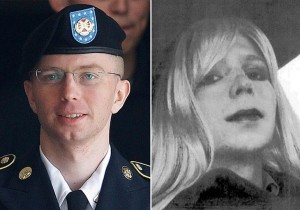
Report: Army considers easing policy on transgender soldiers
The decision to discharge transgender soldiers from the Army would be made by a top, senior civilian official under a plan outlined in a draft document obtained by USA Today.
The move would make it more difficult to remove such troops from the service.
Instead of being made by lower-level Army officers, the memorandum says, the decision to discharge transgender soldiers would be made by the assistant secretary of the Army for personnel. In all services, transgender troops can be automatically dismissed from service on medical grounds after they are identified.
“Assigning responsibility for discharge decisions to a senior official would be a welcome step toward inclusive policy, but transgender troops will still have to serve in silence until more is done to dismantle the ban,” said Aaron Belkin, director of the Palm Center, which has published research on sexual orientation issues in the military.
The Army had no comment about the memo, known as an All Army Activities directive, or the level at which decisions on dismissing transgender soldiers had been made, said Wayne Hall, an Army spokesman. Senior Defense department officials confirmed that the Army is considering the change. The new directive would expire after 12 months, or sooner, if a broader reinterpretation of the Army’s rules about transgender soldiers is issued.
The Army’s decision echoes the military’s dismantlement of the “don’t ask, don’t tell” policy, which allowed gays and lesbians to serve unless their sexuality was discovered. Before the policy was rescinded in 2011, the decision to discharge gay troops had been raised to the Pentagon’s top lawyer and personnel official and service secretaries. In effect, that requirement functioned as a moratorium, as no further dismissals were sought under “don’t ask, don’t tell.”
“Hopefully this is a signal that the Army — and other service branches — will finally begin a comprehensive review of the regulations regarding transgender servicemembers, which everyone agrees is long overdue,” said Joshua Block, who leads the American Civil Liberties Union Lesbian, Gay, Bisexual and Transgender Project. “I also hope the 12-month time frame is an indication that the Army understands the urgency of this issue for transgender servicemembers and their commanders.”
The Army memo is the latest move toward changing the Pentagon’s policy toward transgender troops. Last week, the Army, for the first time, agreed to allow hormone treatment for Chelsea Manning, a transgender soldier convicted of divulging national security secrets to WikiLeaks. Manning, previously known as Bradley, is serving a 35-year sentence at the Fort Leavenworth, Kan., military prison. In December, Air Force Secretary Deborah James said the ban on transgender troops should be lifted.
The Pentagon does not track the number of transgender troops it has discharged. About 24 transgender troops have been discharged from service, according to a report released last year by the Palm Center. It estimated that 15,000 transgender troops serve.
Under current policy, commanders at the ranks of major, lieutenant colonel or colonel could initiative dismissal proceedings. The new policy would move that decision to a far higher level.
There is no specific reassessment of the ban on transgender troops, said Lt. Cmdr. Nate Christensen, a Pentagon spokesman. However, a routine review began this month of the Pentagon’s medical policy under which transgender troops are discharged, he said. The review is likely to take a year or more.





Leave a Reply